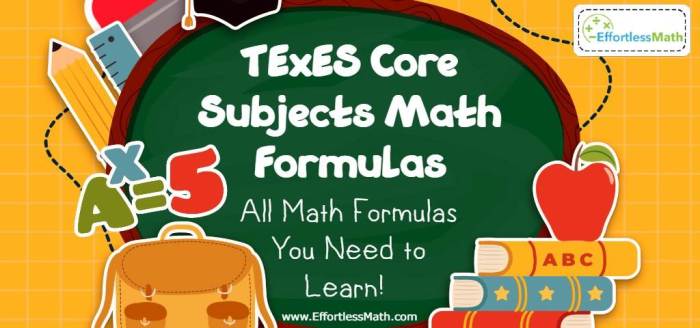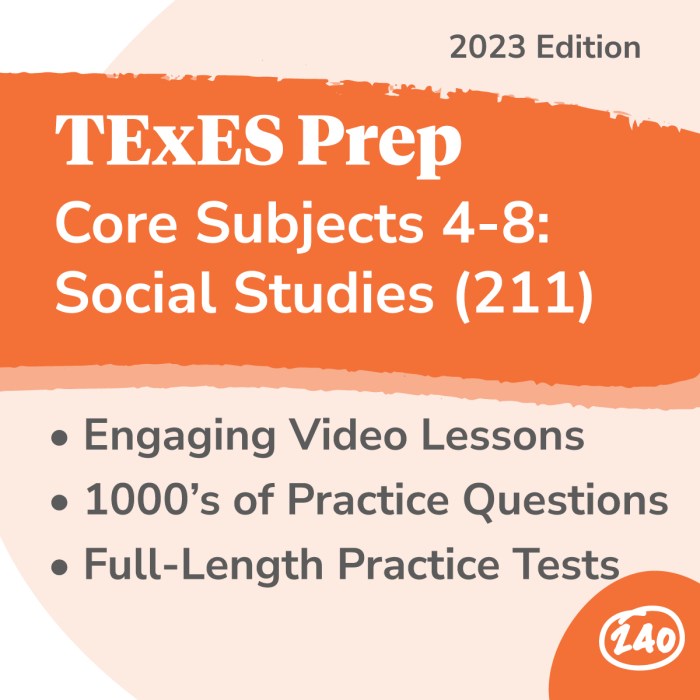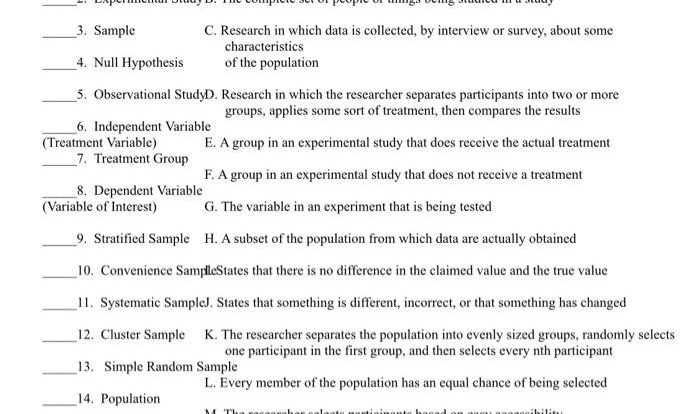Core subjects 4 8 texes – Core Subjects 4-8 TEXES sets the stage for this enthralling narrative, offering readers a glimpse into a story that is rich in detail and brimming with originality from the outset. Dive into the intricacies of core subject education in Texas, exploring the significance of these subjects and the strategies that empower educators to deliver exceptional instruction.
The Texas Essential Knowledge and Skills (TEKS) serve as the guiding force for core subject education in the state, ensuring alignment between curriculum and standards. Assessment and evaluation play a crucial role in gauging student progress and informing instructional practices.
Core Subjects in 4-8 Texas Exam
In Texas, core subjects for grades 4-8 are of paramount importance, serving as the foundation for students’ academic success and future endeavors. These subjects equip students with essential knowledge and skills that are crucial for their cognitive development, problem-solving abilities, and overall well-being.
The core subjects in Texas for grades 4-8 encompass a broad range of disciplines that cater to students’ diverse learning needs and interests. These subjects include:
English Language Arts (ELA)
- Develops students’ reading, writing, listening, and speaking skills.
- Enhances their critical thinking, problem-solving, and communication abilities.
- Provides a foundation for success in all academic areas and beyond.
Mathematics
- Builds students’ numerical literacy and problem-solving skills.
- Develops their logical reasoning, spatial reasoning, and critical thinking abilities.
- Prepares them for higher-level mathematics courses and careers in STEM fields.
Science
- Fosters students’ curiosity and understanding of the natural world.
- Develops their critical thinking, problem-solving, and decision-making skills.
- Prepares them for future careers in science, technology, engineering, and medicine.
Social Studies
- Provides students with a comprehensive understanding of history, geography, economics, and government.
- Develops their critical thinking, problem-solving, and decision-making skills.
- Prepares them for active and informed participation in society.
Texas Essential Knowledge and Skills (TEKS)

The Texas Essential Knowledge and Skills (TEKS) are the state standards that define the minimum knowledge and skills that students in Texas public schools are expected to master at each grade level. TEKS are developed by the Texas Education Agency (TEA) with input from educators, parents, and other stakeholders.
They are designed to ensure that all students have the opportunity to receive a high-quality education that prepares them for success in college, career, and life.
Alignment of Core Subject Curriculum with TEKS Standards
Core subject curriculum in Texas is aligned with TEKS standards to ensure that students are learning the knowledge and skills they need to be successful. This alignment is essential for ensuring that all students have access to a high-quality education that prepares them for college, career, and life.
The TEA provides resources and support to help districts and schools align their curriculum with TEKS standards.
Assessment and Evaluation

The 4-8 Texas Core Subjects exam is designed to assess students’ knowledge and skills in the core academic areas of reading, writing, mathematics, science, and social studies. The exam results are used to evaluate student achievement, provide feedback to teachers and students, and inform instructional decisions.The
exam uses a variety of assessment formats, including multiple-choice questions, constructed-response questions, and performance tasks. Multiple-choice questions assess students’ knowledge of specific facts and concepts. Constructed-response questions require students to demonstrate their understanding of a topic by writing an essay or answering a question in their own words.
Performance tasks assess students’ ability to apply their knowledge and skills to real-world situations.Effective assessment and evaluation in core subjects involve using a variety of assessment methods to gather data on student learning. This data can then be used to inform instruction and provide feedback to students.
Some strategies for effective assessment and evaluation include:
- Using a variety of assessment formats to assess different types of learning.
- Providing students with clear and specific feedback on their work.
- Using assessment data to inform instructional decisions.
- Involving students in the assessment process.
Types of Assessments
The 4-8 Texas Core Subjects exam uses a variety of assessment formats, including:
-
-*Multiple-choice questions
These questions require students to select the best answer from a list of options.
-*Constructed-response questions
These questions require students to write an essay or answer a question in their own words.
-*Performance tasks
These tasks assess students’ ability to apply their knowledge and skills to real-world situations.
Each type of assessment has its own strengths and weaknesses. Multiple-choice questions are efficient and objective, but they can be limited in their ability to assess higher-order thinking skills. Constructed-response questions allow students to demonstrate their understanding of a topic in more depth, but they can be more time-consuming to score.
Performance tasks provide students with an opportunity to apply their knowledge and skills to real-world situations, but they can be difficult to design and implement.The best assessment plan will use a variety of assessment formats to assess different types of learning.
Strategies for Effective Assessment and Evaluation
There are a number of strategies that teachers can use to improve the effectiveness of their assessment and evaluation practices. These strategies include:
-
-*Using a variety of assessment formats
Different assessment formats assess different types of learning. By using a variety of assessment formats, teachers can get a more complete picture of student learning.
-*Providing students with clear and specific feedback
Feedback is essential for student learning. Teachers should provide students with clear and specific feedback on their work so that they can understand what they need to do to improve.
-*Using assessment data to inform instructional decisions
Assessment data can be used to inform instructional decisions. By analyzing assessment data, teachers can identify areas where students need additional support.
-*Involving students in the assessment process
Students can be involved in the assessment process in a number of ways. For example, students can help to develop assessment criteria and rubrics, and they can self-assess their own work.
By using these strategies, teachers can improve the effectiveness of their assessment and evaluation practices and ensure that students are getting the feedback they need to succeed.
al Strategies

Effective teaching of core subjects in grades 4-8 requires a multifaceted approach that encompasses evidence-based al strategies, differentiated instruction, and engaging teaching methods.
Research-based al strategies provide a solid foundation for effective teaching and learning. These strategies enhance student engagement, improve comprehension, and foster critical thinking skills. One such strategy is cooperative learning, where students work in small groups to complete tasks, promoting collaboration and peer support.
Differentiated Instruction, Core subjects 4 8 texes
Differentiated instruction is crucial in core subject education. It recognizes that students have diverse learning needs and styles. By tailoring instruction to meet individual student needs, teachers can ensure that all students have an equitable opportunity to succeed. This may involve varying the pace, content, or teaching methods to accommodate different learning levels and preferences.
Engaging Teaching Methods
Engaging and interactive teaching methods are essential for capturing students’ attention and fostering their interest in core subjects. Hands-on activities, such as science experiments or historical simulations, provide experiential learning opportunities that make concepts more tangible and memorable. Technology can also enhance engagement, through the use of interactive simulations, virtual field trips, or online games that reinforce learning.
Technology Integration: Core Subjects 4 8 Texes

Integrating technology into core subject areas offers numerous benefits, enhancing student learning experiences and promoting academic achievement.
Technology tools and resources can facilitate personalized learning, improve engagement, and provide access to a wealth of educational materials.
Specific Technology Tools and Resources
- Interactive Whiteboards:Enable interactive presentations, collaboration, and real-time annotation.
- Learning Management Systems (LMS):Provide a centralized platform for course materials, assignments, and communication.
- Educational Apps and Software:Offer engaging and interactive learning experiences tailored to specific subject areas.
- Online Simulations and Games:Allow students to explore complex concepts and engage in hands-on activities in a virtual environment.
- Virtual Reality (VR) and Augmented Reality (AR):Immersive technologies that enhance learning through interactive experiences.
Effective Use of Technology for Student Engagement and Achievement
- Personalized Learning:Tailor instruction to individual student needs and learning styles.
- Increased Motivation:Engage students through interactive and visually appealing content.
- Collaboration and Communication:Foster collaboration among students and with the teacher.
- Real-Time Feedback:Provide immediate feedback on student progress and understanding.
- Access to Resources:Provide access to a vast array of educational materials and resources.
Collaboration and Partnerships

Collaboration and partnerships are crucial in supporting core subject education, fostering a cohesive learning environment that benefits students, educators, and the community. Collaboration among teachers, administrators, and parents creates a shared understanding of student needs and allows for tailored instruction and support.
Core subjects 4 8 TEXES are a crucial part of the teacher certification process in Texas. While preparing for these exams, it’s also beneficial to explore other resources such as the ADP 6.0 Board Questions . Understanding the different perspectives and question formats can enhance your overall preparation strategy for core subjects 4 8 TEXES.
Partnerships with external organizations provide additional resources, expertise, and real-world connections, enriching core subject learning experiences.
Partnerships with External Organizations
Collaborations with museums, libraries, businesses, and community organizations can enhance core subject learning. Museums offer hands-on exhibits and educational programs aligned with curriculum standards. Libraries provide access to a vast collection of resources, fostering literacy and research skills. Businesses offer mentorship opportunities, exposing students to real-world applications of core subjects.
Community organizations provide experiential learning opportunities, connecting students with their local environment and fostering civic engagement.
Professional Development
Ongoing professional development is crucial for core subject teachers to stay abreast of best practices, improve their instructional skills, and meet the evolving needs of their students. It enables them to enhance their content knowledge, pedagogical approaches, and assessment strategies.
There are various types of professional development opportunities available to teachers, including workshops, conferences, online courses, and collaborative learning experiences. These programs provide teachers with opportunities to connect with colleagues, learn from experts, and engage in reflective practice.
Selecting and Participating in Effective Professional Development Programs
When selecting professional development programs, teachers should consider their individual needs, interests, and the specific areas they wish to improve. They should also look for programs that align with their school’s goals and curriculum.
During professional development, teachers should actively participate in discussions, ask questions, and engage in hands-on activities. They should also reflect on their learning and apply it to their teaching practice. Effective professional development programs provide opportunities for follow-up support and collaboration to ensure that teachers can implement their new knowledge and skills in the classroom.
Equity and Access

Equity and access in core subject education refer to the principle that all students, regardless of their background or circumstances, have the opportunity to succeed in core subjects. This includes providing all students with the necessary resources, support, and opportunities to learn and achieve at high levels.
Ensuring equity and access in core subjects requires a comprehensive approach that addresses multiple factors, including:
- Providing high-quality instruction that meets the needs of all students
- Creating a positive and supportive learning environment
- Providing access to rigorous and relevant curriculum materials
- Addressing the needs of students from diverse backgrounds
- Providing professional development for teachers on equity and access issues
Programs and Initiatives
Numerous programs and initiatives have been developed to promote equity and access in core subject education. These include:
- The National Education Association’s (NEA) Equity and Access Initiative
- The American Federation of Teachers’ (AFT) Equity and Excellence Initiative
- The Council of Chief State School Officers’ (CCSSO) Race to the Top Equity and Access Initiative
- The National Governors Association’s (NGA) Equity and Excellence in Education Initiative
These programs and initiatives provide resources and support to schools and districts to help them create more equitable and inclusive learning environments for all students.
FAQ Overview
What is the purpose of the Core Subjects 4-8 TEXES exam?
The Core Subjects 4-8 TEXES exam assesses the knowledge and skills of prospective teachers in core subject areas, ensuring they are prepared to deliver effective instruction.
How can I prepare for the Core Subjects 4-8 TEXES exam?
Thorough preparation is key. Study the TEKS standards, utilize practice tests, and seek professional development opportunities to enhance your content knowledge and teaching methodologies.
What are the benefits of integrating technology into core subject instruction?
Technology integration enhances student engagement, provides access to diverse learning resources, and supports differentiated instruction, fostering a more dynamic and personalized learning environment.

